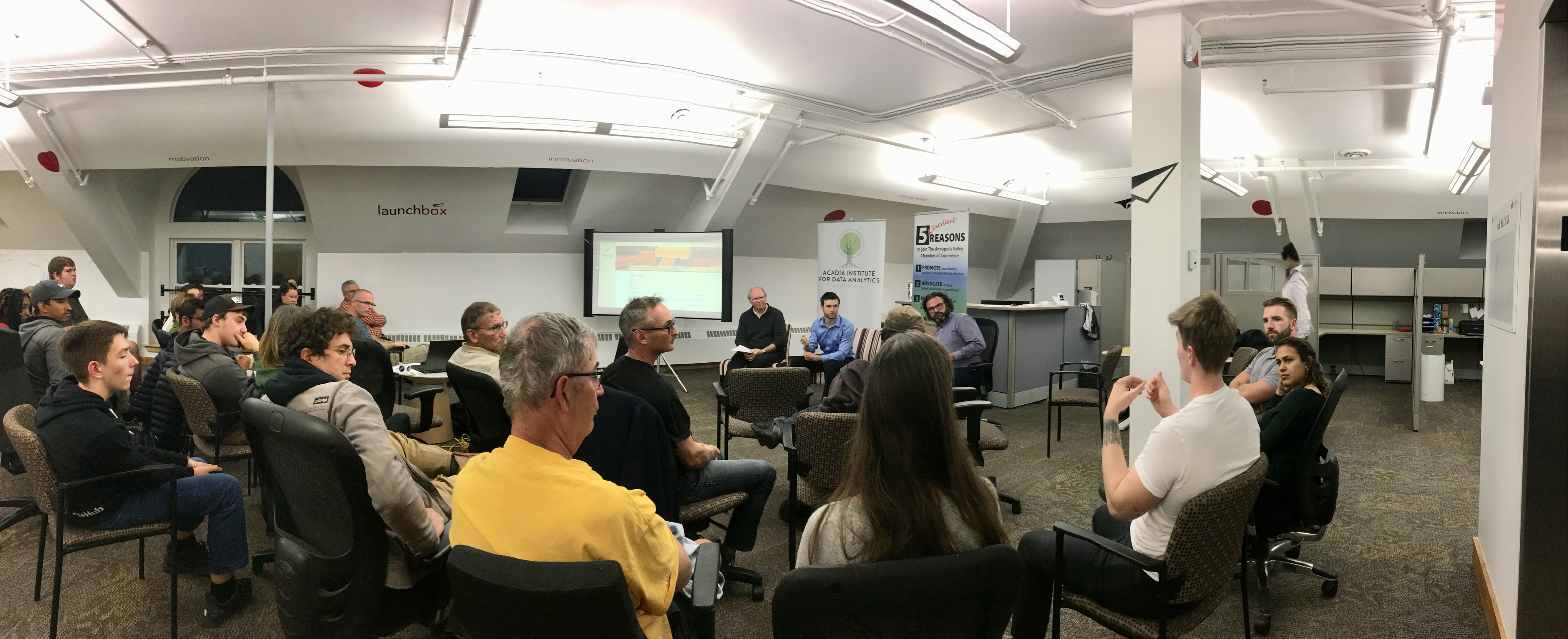Available Expertise and Resources
Acadia is well positioned geographically, culturally and from a resource perspective to form an Institute for Data Analytics.
Internal Resources – Work on data analytics is wide spread at Acadia, taking place across all three faculties, in the Sciences, the Arts and Professional Studies. In the Faculty of Science, Acadia has nationally and internationally recognized researchers who do work in data collection, database management, data mining, machine learning, statistics, mathematical modeling, simulation and data visualization. Data analytics expertise resides in the Jodrey School of Computer Science and the Department of Mathematics and Statistics. Data analytics is applied in all other departments and schools of science, particularly in Biology, Physics, Chemistry, Nutrition and Earth and Environmental Sciences. The Faculty of Professional Studies uses data analytics in areas as diverse as Business, Kinesiology, Environmental Studies, and Community Development. As an example, the Human Motion Lab in Kinesiology records megabytes of data from motion capture technology. In the School of Business, Business Analytics, an integration of business analysis and data analytics, is of growing importance because of the impact of Big Data on organizations and IBM’s new Global Delivery Center for Business Analytics in Halifax. The Faculty of Arts has departments which traditionally have done data collection and analysis such as Economics, Politics and Sociology. Over the last ten years departments such as English and Theatre and Music have made increasing use of digital technologies for collecting, analyzing and visualizing data.
The university has several research groups in which data analytics plays a major role. Most notable of these are the Acadia Centre for Mathematical Modeling and Computation (ACMMaC) and the Intelligent Information Technology Research Lab (IITRL). The Mathematics and Statistics Department also offers a Statistical Consulting Centre (SSC) that provides expertise to internal and external projects involving Acadia faculty and students.
In terms of physical resources, Acadia has a series of central computing servers, a shared high performance computing cluster managed by ACMMaC, and various specialized laboratory computing systems. The university also offers courses in data analytics from several departments including Mathematics and Statistics, Computer Science, Business, Biology, Physics and Economics.
Acadia provides several administrative resources that will be utilized by the Institute. AIDA will be housed in the Incubation and Innovation Services unit of the Acadia Entrepreneurship Centre, located in Patterson Hall, and it will use the administrative and business expertise of the Centre in its development. The Acadia Entrepreneurship Centre will also assist with new start-ups that emerge from AIDA outreach activities and work to attract new ICT related industry to the Wolfville area. Acadia’s Division of Research and Graduate Studies, under the direction of Dean Anna Redden, will provide important links to the research community at Acadia and facilitate the connection between Acadia students and AIDA projects. The Office of Industry & Community Engagement (ICE), led by Leigh Huestis, will assist AIDA in connecting faculty, industry and government in the pursuit of applied research and commercialization opportunities.

